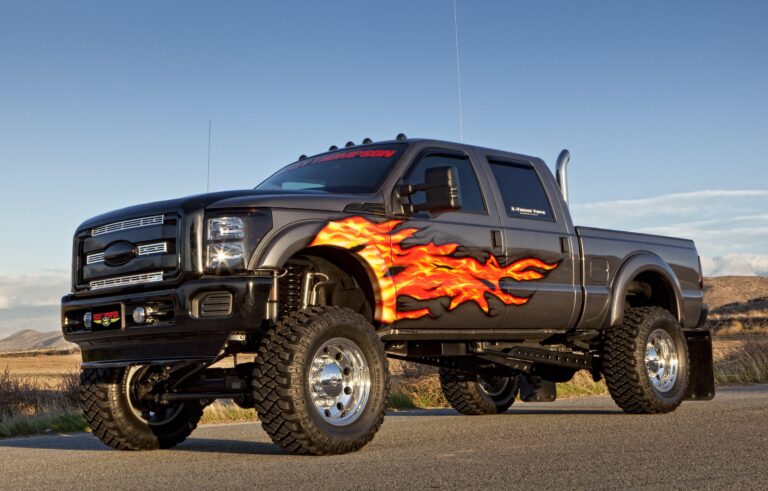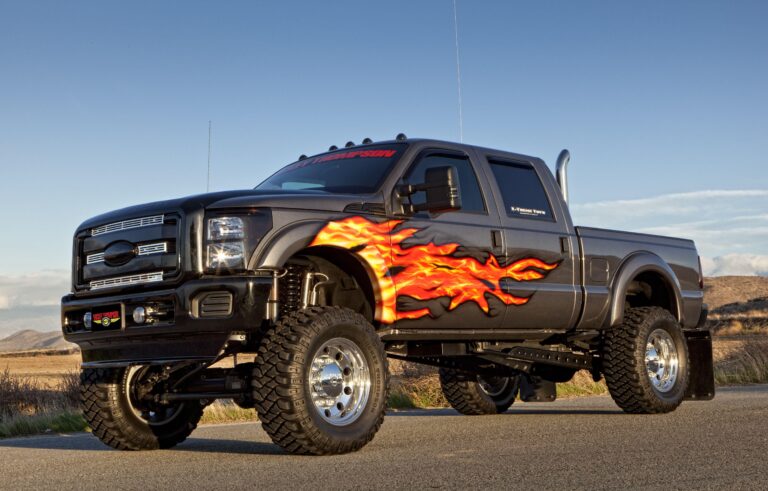How Much Are U-Haul Trailers To Rent: A Comprehensive Guide to Costs and Considerations
How Much Are U-Haul Trailers To Rent: A Comprehensive Guide to Costs and Considerations cars.truckstrend.com
Moving, decluttering, or tackling a large project often involves transporting items that just won’t fit in your everyday vehicle. For countless individuals and families, U-Haul trailers emerge as an indispensable solution, offering a cost-effective and flexible way to haul everything from furniture and appliances to construction materials and even vehicles. But before you hitch up and hit the road, a crucial question arises: "How much are U-Haul trailers to rent?"
Understanding the true cost of a U-Haul trailer rental goes beyond the advertised daily rate. It involves navigating various factors, different trailer types, optional services, and potential hidden fees. This comprehensive guide aims to demystify the pricing structure, providing you with a clear roadmap to budget accurately and make an informed decision for your hauling needs. By the end of this article, you’ll be equipped with the knowledge to not only estimate your rental cost but also to choose the right trailer and avoid common pitfalls.
How Much Are U-Haul Trailers To Rent: A Comprehensive Guide to Costs and Considerations
Unpacking the U-Haul Trailer Fleet: Types and Their Uses
U-Haul offers a diverse range of trailers, each designed for specific hauling tasks. The type and size of the trailer you choose will be the primary determinant of your base rental cost.
1. Cargo Trailers (Enclosed)
These trailers are fully enclosed, providing protection from the elements and security for your belongings. They are ideal for moving household goods, furniture, boxes, and any items that need to stay dry and secure.
- 4′ x 8′ Cargo Trailer: The smallest enclosed option, perfect for studio apartments, dorm rooms, or small loads of boxes. It’s lightweight and easy to tow.
- 5′ x 8′ Cargo Trailer: The most popular size, capable of holding the contents of a small apartment or a few pieces of large furniture like a queen-size bed.
- 5′ x 10′ Cargo Trailer: Offers more length for longer items and a lower deck for easier loading, suitable for a 1-bedroom apartment.
- 6′ x 12′ Cargo Trailer: The largest enclosed trailer, featuring a tandem axle for better stability and often equipped with a loading ramp. Ideal for 1-2 bedroom moves or larger furniture pieces.

2. Utility Trailers (Open Top)
Utility trailers are open-top, flatbed trailers, making them suitable for items that don’t require protection from weather, are oddly shaped, or need to be loaded from the top. They are excellent for landscaping projects, construction materials, ATVs, motorcycles, or large equipment.
- 4′ x 7′ Utility Trailer: Smallest open trailer, great for yard waste, small equipment, or a few pieces of lumber.
- 5′ x 8′ Utility Trailer: A versatile option for larger lawnmowers, ATVs, or more substantial loads of debris.
- 5′ x 10′ Utility Trailer: Offers more length and often a low deck, good for transporting motorcycles or longer construction materials.
- 6′ x 12′ Utility Trailer: The largest utility trailer, often with a ramp and tandem axle, suitable for large equipment, multiple motorcycles, or significant construction loads.
3. Car Trailers (Vehicle Transport)
Designed specifically for moving vehicles, these trailers come in two main types:
- Tow Dolly: Lifts only the front wheels of the towed vehicle off the ground. Ideal for front-wheel drive cars and shorter distances.
- Auto Transport: A full-platform trailer that lifts all four wheels of the towed vehicle off the ground. Recommended for all-wheel drive, 4×4 vehicles, longer distances, or classic cars.
Key Factors Influencing U-Haul Trailer Rental Costs
The sticker price you see online is just the starting point. Several variables will impact your final rental cost:
- Trailer Type and Size: As discussed, larger and more specialized trailers (like car transports) inherently cost more than smaller cargo or utility trailers.
- Rental Duration: Most U-Haul trailer rentals are quoted on a daily basis for "in-town" (round trip) rentals. Longer durations will multiply this daily rate.
- One-Way vs. In-Town/Round Trip:
- In-Town (Round Trip): You pick up and return the trailer to the same U-Haul location. These are generally much cheaper, often a flat daily rate.
- One-Way: You pick up the trailer at one location and return it to a different U-Haul location. This option is typically significantly more expensive due to the logistical challenges for U-Haul to reposition their equipment. One-way rates are calculated based on the distance of your move, the demand for trailers at both ends, and the time of year. Not all trailer types are available for one-way rentals (utility trailers are usually in-town only).
- Rental Location and Demand: Prices can fluctuate slightly based on geographical location (e.g., higher demand in major cities) and current inventory levels.
- Time of Year/Seasonality: Peak moving seasons (summer months, end of the month, holidays) often see higher demand, which can lead to higher prices and limited availability, especially for one-way rentals.
- Optional Add-ons and Services: Insurance, moving supplies, and hitch installations are not included in the base trailer rental price.
Understanding the Base Rental Price and Additional Costs
When you look up U-Haul trailer prices, you’ll typically see a base daily rate for in-town rentals. For one-way rentals, you’ll get a total price for the entire estimated duration of your trip. However, this is rarely the final amount you’ll pay.
Base Rental Price (What the Advertised Price Covers)
The base price covers the use of the trailer itself for the specified duration. For in-town rentals, this is often a simple daily fee. For one-way rentals, it’s a calculated fee based on your route and the number of days estimated for the journey.
Additional Costs and Fees to Consider
These are crucial to factor into your budget to avoid surprises:
- Environmental Fees: A small, flat fee (usually a few dollars) applied to all rentals to cover environmental initiatives.
- Taxes: Standard sales tax will be applied to your rental cost, varying by state and local regulations.
- Insurance (Safemove® / Safetow®): While optional, U-Haul’s damage waivers are highly recommended.
- Safetow®: Specifically for trailers, it can cover damage to the U-Haul trailer itself (accidental damage waiver) and sometimes offers cargo protection for your belongings inside the trailer. Your personal auto insurance policy may not cover damage to a rented trailer or your cargo, so checking with your insurer is vital. This typically adds $8-$20+ per day, depending on the trailer type.
- Hitch and Wiring Installation: If your personal vehicle isn’t already equipped for towing, you’ll need a hitch receiver, a hitch ball, and wiring for trailer lights. U-Haul offers these services:
- Hitch Installation: Can range from $150 to $400+, depending on your vehicle and the complexity.
- Wiring Harness: Typically $50-$100+.
- Hitch Ball: Around $10-$20.
- These are one-time costs if you plan to use your vehicle for towing regularly, but if it’s a single rental, it’s a significant upfront expense.
- Moving Supplies: Dollies, moving blankets, boxes, tape, and packing materials are sold separately.
- Fuel Costs for Your Tow Vehicle: While U-Haul trailers don’t consume fuel directly, towing a heavy load will significantly decrease your vehicle’s fuel efficiency. Factor in extra gas money, especially for long distances.
- Late Return Fees: Returning the trailer past your agreed-upon time can incur additional daily rental charges or specific late fees.
- Cleaning Fees: If you return the trailer excessively dirty or with trash, you might be charged a cleaning fee.
How to Get an Accurate Quote and Book Your Trailer
Getting a precise quote is straightforward with U-Haul’s online system, but knowing what information you’ll need beforehand can streamline the process:
- Visit U-Haul’s Official Website: This is the easiest and most accurate way to get a quote.
- Enter Your Details: You’ll need to input:
- Pickup Location: Your desired U-Haul center.
- Return Location: The same location for in-town, or your destination for one-way.
- Pickup Date and Time.
- Return Date and Time.
- Trailer Type: Select the type (cargo, utility, car transport) and then the specific size you need.
- Select Your Vehicle: You’ll be prompted to enter information about your towing vehicle (make, model, year) to ensure compatibility and verify it has the necessary towing capacity and equipment.
- Review the Quote: The system will display the estimated base rental cost. This is where you’ll also see options for Safetow® insurance and a breakdown of estimated taxes and environmental fees.
- Reserve Online: Once you’re satisfied, you can reserve the trailer. Keep in mind that reservations are for equipment availability, and while U-Haul strives to provide the requested equipment, specifics (like exact pickup location) can sometimes be adjusted based on demand. It’s always a good idea to confirm your reservation closer to the pickup date.
- Call or Visit In-Person: If you prefer, you can call your local U-Haul center or visit in person for a quote and to make a reservation.
U-Haul Trailer Rental Price Table (Estimates)
Please note: These prices are estimates for reference only and can vary significantly based on location, demand, duration, and whether it’s an in-town or one-way rental. One-way rates are particularly variable and depend heavily on the distance of your move. Prices do not include taxes, environmental fees, insurance, or hitch/wiring costs.
| Trailer Type | Size | Typical In-Town Daily Rate (Approx.) | Estimated One-Way Rental (Range) | Key Features / Capacity |
|---|---|---|---|---|
| Cargo Trailers | 4′ x 8′ | $18.95 – $24.95 | $100 – $300+ | ~2,000 lbs capacity, enclosed, lightweight, ideal for small loads. |
| 5′ x 8′ | $22.95 – $29.95 | $120 – $400+ | ~2,800 lbs capacity, enclosed, most popular, fits queen bed. | |
| 5′ x 10′ | $27.95 – $34.95 | $150 – $500+ | ~2,600 lbs capacity, enclosed, low deck for easy loading. | |
| 6′ x 12′ | $32.95 – $39.95 | $180 – $600+ | ~2,500 lbs capacity, enclosed, tandem axle, loading ramp, largest enclosed. | |
| Utility Trailers | 4′ x 7′ | $14.95 – $19.95 | Generally In-Town Only | ~1,500 lbs capacity, open top, good for yard work, small equipment. |
| 5′ x 8′ | $18.95 – $24.95 | Generally In-Town Only | ~1,890 lbs capacity, open top, versatile for various loads. | |
| 5′ x 10′ | $22.95 – $29.95 | Generally In-Town Only | ~1,650 lbs capacity, open top, low deck, suitable for motorcycles. | |
| 6′ x 12′ | $27.95 – $34.95 | Generally In-Town Only | ~2,670 lbs capacity, open top, ramp, tandem axle, largest utility. | |
| Car Trailers | Tow Dolly | $35.00 – $55.00 | $150 – $700+ | For front-wheel drive vehicles, lifts two wheels off ground. |
| Auto Transport | $45.00 – $65.00 | $200 – $900+ | For all vehicles, lifts all four wheels off ground, heavier duty. |
Tips for Saving Money on U-Haul Trailer Rentals
Budgeting wisely can significantly reduce your overall costs:
- Book in Advance: Especially for one-way rentals or during peak seasons, booking early can secure better rates and ensure availability.
- Consider In-Town/Round Trip: If your move is local, always opt for an in-town rental. It’s almost always cheaper than a one-way option.
- Choose the Right Size: Don’t overpay for space you don’t need. Accurately estimate your cargo volume. Conversely, don’t under-estimate and risk needing multiple trips or a larger trailer mid-way.
- Check Your Vehicle’s Towing Capacity: Ensure your vehicle can safely and legally tow the chosen trailer and its loaded weight. Avoid last-minute hitch installations if possible, or factor them into your budget.
- Compare Quotes Online: Always use U-Haul’s website for an instant, detailed quote that includes all estimated fees.
- Pack Efficiently: Maximize the space in your trailer to avoid needing a larger size or making multiple trips.
- Return on Time and Clean: Avoid late fees and potential cleaning charges by adhering to your return schedule and leaving the trailer tidy.
- DIY Hitch Installation (with caution): If you’re mechanically inclined and plan on frequent towing, installing your own hitch can save money in the long run, but safety and correct installation are paramount.
Important Considerations Before Renting
Beyond cost, safety and practicality are key when renting a U-Haul trailer:
- Towing Vehicle Compatibility: This is non-negotiable. Your vehicle must have a sufficient towing capacity (check your owner’s manual), a proper hitch receiver (Class I, II, III, etc.), the correct size hitch ball, and working trailer lights (4-way or 7-way wiring harness). U-Haul will verify this when you reserve.
- Driving with a Trailer: Towing changes how your vehicle handles. Anticipate wider turns, longer braking distances, reduced acceleration, and increased sensitivity to crosswinds. Practice driving in a safe, open area if you’re new to towing.
- Loading and Weight Distribution: Proper loading is critical for safety. Distribute about 60% of the cargo weight in the front half of the trailer, near the hitch, and ensure the load is balanced side-to-side. Secure all items to prevent shifting.
- Insurance: Re-evaluate your personal auto insurance policy to understand what coverage, if any, extends to a rented trailer and its contents. U-Haul’s Safetow® option offers peace of mind.
- Pre-Rental Inspection: Before driving off, thoroughly inspect the trailer for any existing damage (scratches, dents, tire condition, lights) and point them out to the U-Haul representative to avoid being held responsible.
Frequently Asked Questions (FAQ)
Q: Can I rent a U-Haul trailer for a one-way trip?
A: Yes, U-Haul offers one-way rentals primarily for their cargo trailers and car transports. Utility trailers are generally only available for in-town (round trip) rentals. One-way rates are higher and depend on distance and demand.
Q: Do I need insurance for a U-Haul trailer?
A: While U-Haul doesn’t legally require you to purchase their Safetow® insurance, it’s highly recommended. Your personal auto insurance may not fully cover damage to the rented trailer or your cargo. Check with your insurance provider. Safetow® provides a damage waiver and often cargo protection.
Q: What kind of hitch do I need to tow a U-Haul trailer?
A: You’ll need a proper hitch receiver mounted to your vehicle’s frame, a hitch ball of the correct size (usually 1-7/8" or 2" for U-Haul trailers), and a working wiring harness for trailer lights (typically a 4-flat connector). Your vehicle must also meet the minimum towing capacity requirements.
Q: Does my car have to be a certain size or type to tow a U-Haul trailer?
A: Yes, your vehicle’s towing capacity is crucial. U-Haul’s system will verify if your specific make and model can safely tow the chosen trailer. Generally, smaller sedans may only be able to tow the smallest trailers, while SUVs, trucks, and vans are better suited for larger trailers.
Q: Are ramps included with U-Haul trailers?
A: Most 6’x12′ enclosed cargo trailers and some larger utility trailers come equipped with a loading ramp. For smaller trailers, you may need to rent or provide your own ramp if necessary for loading.
Q: Can I rent a U-Haul trailer without also renting a U-Haul truck?
A: Absolutely! As long as your personal vehicle meets U-Haul’s towing requirements (correct hitch, wiring, and sufficient towing capacity), you can rent a trailer independently.
Q: What happens if I return the trailer late?
A: U-Haul typically charges additional daily rental fees for late returns. It’s important to communicate with the U-Haul location if you anticipate being late to avoid unexpected charges.
Q: What if I damage the U-Haul trailer?
A: If you purchased Safetow® insurance, it would likely cover the repair costs, subject to its terms and conditions. Without Safetow®, you would be responsible for the full cost of repairs or replacement.
Conclusion
Renting a U-Haul trailer can be a highly efficient and economical solution for a wide array of hauling and moving tasks. However, truly understanding "How much are U-Haul trailers to rent" requires looking beyond the initial advertised price. By considering the trailer type, rental duration, one-way versus in-town options, and the various additional costs like insurance, hitch installations, and potential fees, you can build an accurate budget and avoid unwelcome surprises.
Armed with this comprehensive guide, you are now well-prepared to navigate U-Haul’s offerings, choose the right trailer for your needs, get an accurate quote, and embark on your hauling journey with confidence and a clear understanding of the financial commitment involved. Plan wisely, tow safely, and make your next move or project a smooth success.





